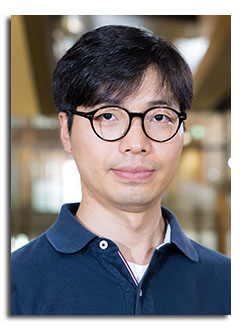
Abstract
This presentation provides the recent progress of thin film photovoltaics, spotlighting a trajectory of progress spanning from nanoscale innovations to enhanced device efficiency. The discussion encompasses novel materials, with a particular emphasis on emerging technologies like halide perovskites and kesterites photovoltaic materials. An exploration into advanced charge transport properties at the nanoscale defects unfolds, examining their structural and electronic roles. Furthermore, the discussion delves into sophisticated concepts for effective nanoscale engineering, elucidating strategies that amplify device efficiency. Techniques for characterising nanoscale defects, including twins and grain boundaries, are explored through scanning probe microscopy methods such as Kelvin probe force microscopy, piezoresponse force microscopy, conductive AFM, and nano IR, providing insights into the intricate interplay of structural and electronic elements in thin film photovoltaic devices.
Click here to see all available video seminars.
Click here to go to the SPREE HOMEPAGE.
Brief Bio
Dr. Jae Sung Yun is a Lecturer in Energy Technology at the Advanced Technology Institute, Department of Electrical and Electronic Engineering, University of Surrey, UK. Additionally, he serves as an Adjunct Lecturer at the School of Photovoltaic and Renewable Energy Engineering (SPREE) at UNSW Sydney. In 2015, Dr. Yun obtained his Ph.D. in silicon thin film solar cells under the guidance of Professor Martin Green. Following this, he held positions as a postdoctoral researcher and a Lecturer at the SPREE at the UNSW Sydney. His research focuses on advancing photovoltaic technologies and investigating the properties of nanoscale topological defects using scanning probe microscopy. His extensive research efforts have resulted in over 70 publications in peer-reviewed journals with greater than 4900 citations.
